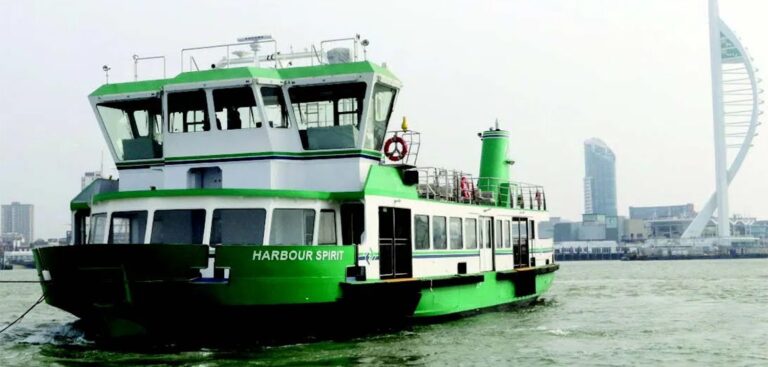The FLO-MAR project, co-funded from the Clean Maritime Call, a MarRI-UK initiative supported by the UK’s Department for Transport, has announced it has been making good progress on research to assess the feasibility of using flow batteries in vessels.
The project has selected a harbor ferry designed by Houlder as the most suitable vessel to be studied, chosen because of its short crossings and subsequent low-energy usage, and regular charging opportunities during its daily operation.
Naval Architects and project partner Houlder undertook an initial feasibility design study across a range of vessels in order to better understand their technical suitability to use a flow battery for either propulsion or auxiliary loads; 15 vessels from small river passenger vessels up to coastal tankers were evaluated to give a cross-section of the type of vessels currently operating around the UK coast whose service characteristics could viably integrate the advantages of a flow battery.
The requirement for regular replenishment of the flow battery was an important consideration which led the team to identify three out of the 15 vessels for further investigation. Two of the vessels selected were ferries – one a 74m ro-ro freight ferry, the other a 32m harbor passenger ferry – and the third vessel a product tanker.
The project partners noted that existing battery-powered vessels all currently use lithium chemistry batteries which require substantial shore-side infrastructure. Recent developments have made flow battery technology suitable for marine applications and they have the added advantage of offering much faster charging in port, coupled with cost-effective, high-capacity storage.
Project partner Swanbarton, a specialist in energy storage and control technologies, said it reviewed a number of existing electric vessels in Europe and China as well as existing technology in flow batteries, and held discussions with specific technology companies. Based on its research, Swanbarton specified the most suitable battery option for each of the vessels selected by Houlder, based on the power utilization requirements. Its findings suggest a hybrid-power system of bespoke flow battery and capacitors would be most suitable for the harbor ferry selected, while a bespoke flow battery would be required for the freight ro-ro ship and product tanker.
David Wing, director, ship design and engineering, Houlder, commented, “We see the market for flow batteries as a source of power being similar to the current areas in which Li-ion batteries are currently being deployed for all-electric propulsion. The flow battery offers advantages where the driving requirement for sizing the battery is energy storage and high numbers of charge/discharge cycles rather than peak power delivery. This, combined with the capability to trickle-charge a shore-based electrolyte storage and quickly replenish the ship’s battery by exchange of electrolyte fluids, means it is well suited to a typical passenger/commuter ferry having peak demands at the morning and evening rush-hour. A typical UK harbor ferry has been selected as a case study for further design assessment.”
Marine South East, which is project managing the operation, says it will present its final assessment in early 2021.



